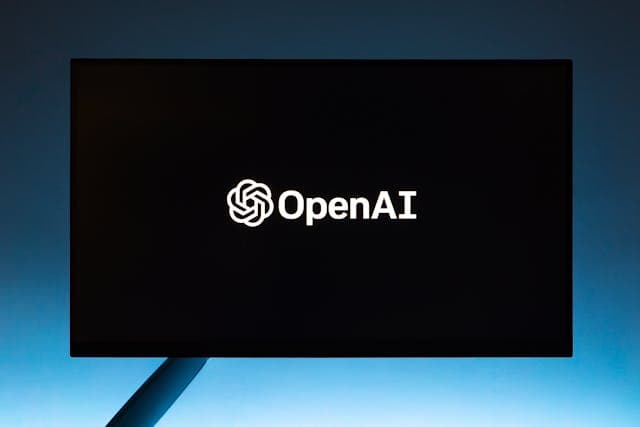In recent years, the surge of AI has immensely taken a transformative era across various industries, and exceptionally in the medical field. The role of AI in healthcare comes up as a foundation for innovation and efficiency in medical practices worldwide. From diagnostic accuracy to revolutionizing drug development and creating personalized treatments, AI is changing the way healthcare is delivered.
Beyond diagnosis and treatment AI is enhancing operational efficiencies in hospitals from redesigning administrative tasks to strengthening resource management. Innovations like powered imaging tools and predictive analytics are helping the healthcare expertise to make more precise decisions. By bridging the gap between accuracy, efficiency and access AI is paving the way for a healthier future.
What Is AI In HealthCare?
AI in Healthcare refers to Machine Learning, deep learning and advanced algorithms to enhance the experience for both the health care professionals as well as patients. AI’s capabilities help the doctors to identify the problems which are unnoticed by the human eye and take proactive action at the earlier stage. With the help of these technologies healthcare professionals can make more quicker and accurate diagnosis, healthcare administrators can trackdown the healthcare records faster, and patients can receive quicker and personalized treatments.
Examples & Applications Of AI In HealthCare
- Improved Diagnostics-
Improved Diagnosis refers to the advancement of reliability, accuracy and efficiency to spot out and understand the conditions. These improvements allow for earlier detection of the diseases with better decision making and with more effective solutions which ultimately leads to the optimized outcomes.
Example- Deepmind, a google owned AI company, has developed a system that can accurately identify and diagnose 50 different eye conditions like glaucoma, diabetic eye by analyzing 3D retinal OCT Scans which detect the eye diseases accurately 94.5% of the time and recommend how patients can referred for the treatment for over 50 sight threatening diseases.
- Personalized Medicine-
No two patients are similar, by analyzing individuals genetic, lifestyle and environmental factors AI will help and provide personalized medicine and treatment plans for each patient. This approach helps to enhance treatment efficiency, reduce side effects and improve patients outcomes by avoiding one size fits all methodology and shift towards more precise, predictive and preventive healthcare.
Example- Foundation Medicine’s AI driven genomic profiling helps oncologists in customizing cancer treatments by analyzing Tumor DNA of patients. This method identifies genetic mutations and recommends necessary therapies, increasing effectiveness of the treatment.
- Enhancing The Pace Of Drug Discovery-
Enhancing drug discovery is nothing but speeding the process of developing new medicines, which involves using Machine Learning, Artificial Intelligence and other advanced technologies to reduce the time it takes to move from research to market with its effective workflow. This approach helps the healthcare professionals to find potential treatments for the diseases which address medical needs faster, and save time & the resources. It not only helps the patients also provides quicker access to the therapies and supports healthcare systems by cutting the cost related with lengthy drug development process.
Example- Exscientia, a British Startup and Japanese firm Sumitomo Dainippon Pharma, invented a drug molecule known as DSP-1181 to cure OCD patients with the help of AI. Usually, the drug development takes 5 years to get a trail, but AI took only 12 months and this molecule entered the clinical phase.
- Virtual Health Assistance-
Virtual Health Assistance, Chatbots and other AI- Powered tools help to provide healthcare guidance and support to the users. These technologies help to answer healthcare queries, provide personalized health recommendations, and schedule appointments based on the data by operating through apps and websites making healthcare more accessible and convenient. By using advanced algorithms, they deliver accurate information while improving overall patient experience.
Example- Ada, a most popular symptom assessment app helps the patients by interacting with them to access symptoms through conversational interfaces then provides the detailed reports where it provides a detail report to the patients which they can share with their doctors, improving pre-consultation efficiency.
- Remote Patient Monitoring-
Remote Patient Monitoring (RPM) is a technology in the healthcare space to track patients beyond the traditional clinical setting. It enables the healthcare professionals to monitor the crucial signs, symptoms and progress through connected devices like mobile apps or home monitoring equipment ensuring ongoing care and early detection of potential issues. This approach gives better convenience for the patients and minimizes the need of hospital visits, and promotes better health management.
Example- Philips HealthCare, their RPM platform allows the healthcare providers to track chronic disease patients remotely by tracking their signs like blood pressure, glucose levels and oxygen levels.
Benefits Of AI In Healthcare
- Cost-efficiency- There are many ways where AI is helping healthcare, in that one of the benefits is reducing the cost. By streamlining operations, reducing medical errors and completing tasks more quickly than humans, AI reduces the cost of care.
- Accurate Data- Maintaining accurate data in healthcare organizations is incredibly important to offer a diagnosis as quickly as possible. AI systems can analyze data faster and with more precision than human practitioners. It allows them to make critical decisions efficiently and offers a chance of being able to prevent patients from the worse conditions.
- Accessibility- When it comes to accessibility, AI has a greater way to enhance the quality of care to the patients in remote and underserved areas. It also allows the patients to monitor their own health through apps, websites, and other AI tools and receive expert assistance online.
- Patient-Centric- If implemented correctly, AI personalizes treatment ensuring patients receive care tailored to their needs. It facilitates the better use of resources and reduces errors.
Challenges Of AI In HealthCare
- Data Privacy- AI systems are vulnerable to security risks, which hold massive problems to the healthcare industry as patients’ data is a vital component. Cyber Attacks are growing rapidly. It’s essential for healthcare institutions to invest in Data security and implement the regulations like GDPA and HIPAA to address these issues.
- Inaccuracies could occur- Using AI in medicine can reduce human errors but it completely won’t get rid of inaccuracies. Whenever there are huge amounts of data involved, mistakes are likely to occur and data gaps could be an issue, which ultimately leads to serious consequences in areas like medicine prescription.
- Ethical Dilemmas- Treating the patients is not just about the physical conditions. In fact, it requires social, historical and economic factors which can influence the specific care for the individuals. AI and Ethics, balancing advanced technology with human touch and emotional support in healthcare is crucial.
- Rapid Changes – Frequent changes in healthcare can be highly disruptive, making the organizations adjust swiftly. Updates in technology, regulations and patient care protocols often require additional training, resources and time which can lead to stress for both the patients and healthcare providers.
Get to know about role of Thought Leadership in Healthcare
Future Of AI In HealthCare
The future of AI in healthcare appears promising. Improvements like AI in medical imaging and AI assisted mental health therapy are reshaping traditional care approaches. The integration of AI with the Internet Of Things (IoT) is a game changer in healthcare sector for patient’s health monitoring and management before they become critical.
As AI continues to advance, collaboration among technologists, healthcare experts, and policy makers will be crucial. Regulatory frameworks must evolve to keep a strike balance between innovation with safeguarding patients’ rights.
As per the reports, AI in the healthcare industry is expected to reach projected revenue of US $ 208,225.9 million by 2030. Worldwide a compound annual growth of AI in healthcare is expected by 37.5 % from the year 2024 to 2030.





